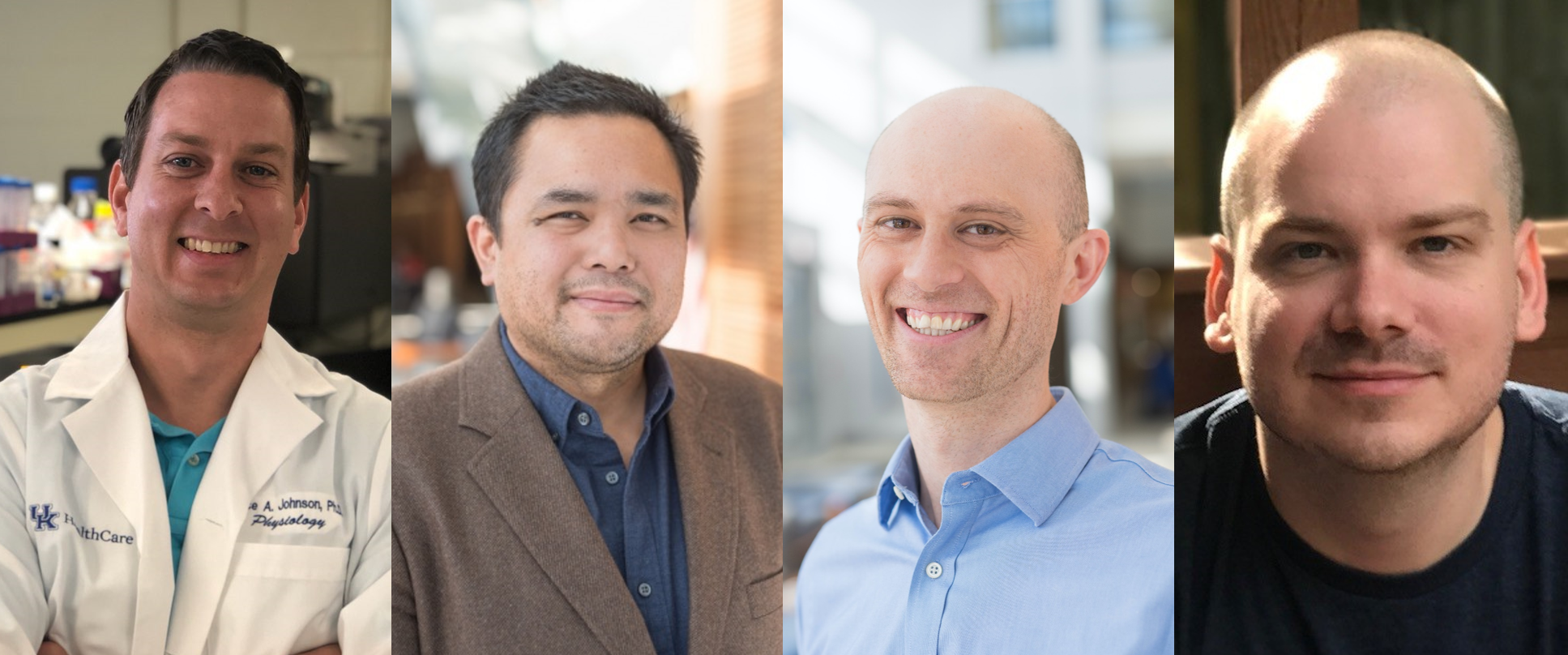Neuroscience Researchers Keep Momentum Going with Online Seminar Series
Mere days after the COVID-19 pandemic forced limitations on research in laboratories, a team of neuroscience-related researchers from the UK College of Medicine figured out a way to keep the important discussions going, virtually.
The team’s solution: developing an online seminar series discussing a wide variety of topics in neuroscience, which is one of the six research priority areas in the UK Vice President for Research’s Research Priorities Initiative.
Lance Johnson, PhD, assistant professor in the department of physiology and researcher with the UK Sanders-Brown Center on Aging, said the idea derived from an interaction with a colleague from Europe, Dr. Rik van der Kant, and was enhanced after gathering advice from a colleague at Harvard University who coordinates a similar series.
“The response from our colleagues was incredible,” Dr. Johnson said. “We moved from seminars once a week to twice a week and had the schedule full through June in just a few days.”
Dr. Johnson and Dr. van der Kant organized a series focused on Alzheimer’s disease. Josh Morganti, PhD, and Adam Bachstetter, PhD, both assistant professors of neuroscience and researchers with the Sanders-Brown Center on Aging and UK Spinal Cord and Brain Injury Research Center (SCoBIRC), joined the initiative to run a series on traumatic brain injury. Warren Alilain, PhD, associate professor of neuroscience and researcher at SCoBIRC, followed with a series on spinal cord injury.
Now, between the three series, the team gathers nearly 500 participants per day – locally, nationally and internationally – through live-streaming on Zoom and on YouTube.
The seminars provide a platform for discussion and learning for researchers who have limited access to labs or whose upcoming conferences have been postponed or canceled.
For example, before the COVID-19 outbreak, Dr. Morganti planned to give a talk at an annual science conference hosted by the National Neuroscience Society this summer.
“Since we already had the kinks worked out through running a weekly neuroscience-focused journal club, we set up this webinar in Zoom for a larger audience, and the benefits of doing the webinar is that it has an integrated question-and-answer and panelist platform. These are the same way in-person speaker sessions work at the national meetings,” Dr. Morganti said. “Through the Zoom Webinar platform we are able to convey the same information we would have shared had we been able to go to the meeting.”
So far, the three series have covered a variety of topics including cerebral glucose and cholesterol metabolism and the major risk factor for Alzheimer’s disease; inflammation and sleep disruption related to traumatic brain injury; axon regeneration, sprouting, and synaptic plasticity; animal and human clinical investigations; and personalized medicine. The list of topics continues to grow.
In addition, organizers have established a separate day, Fridays, dedicated to trainee talks that offer focused discussions and networking opportunities for graduates and postdocs who will be entering the workforce soon.
“I think – and hope – that these seminars have been particularly helpful for trainees, allowing them to stay up-to-date on the latest research and hear from leading researchers every week without having to pay a hefty conference registration fee,” Dr. Johnson said.
Overall, researchers are making the most of the time away from labs and conferences to maintain momentum and keep fellow researchers engaged.
“I have to stress that our success is community driven,” Dr. Alilain said. “The excitement in what we do, the potential impact we can make, and the desire to communicate our findings is the driving force.”
To learn more about the seminar series visit the following website, developed by Susannah Stitzer, research program manager for the Neuroscience Research Priority Area, which includes upcoming speakers and a list of past presentations: https://www.research.uky.edu/neuroscience-research-priority-area/seminar-series.
